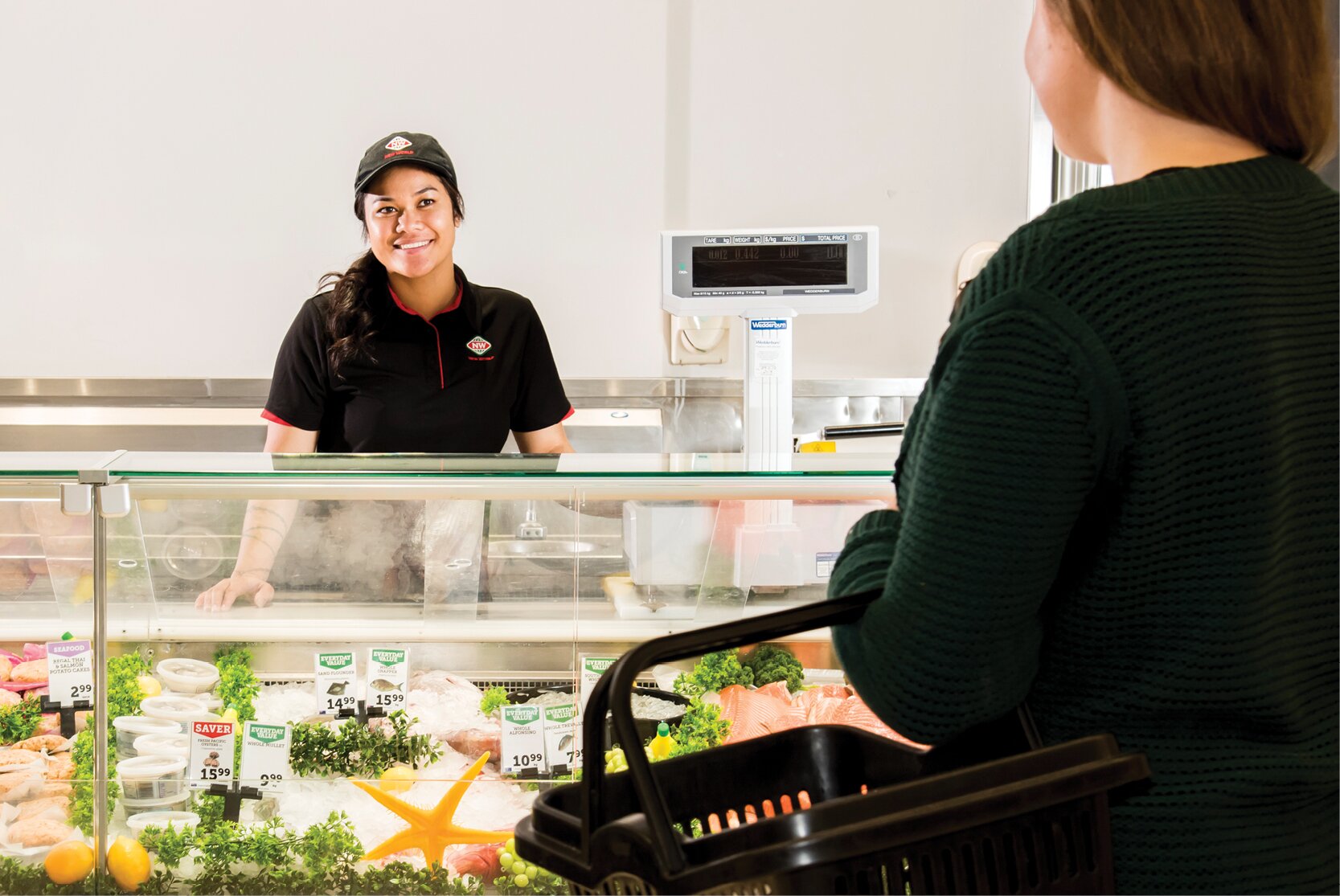
Efficiently distributing seafood and groceries to customers in many locations relies on the smart use of technology. In an ever-evolving and complex business, how do you enhance processes while minimising disruption to day-to-day operations? This was the challenge for Foodstuffs and Datacom.
Changing needs in a complex business
Foodstuffs is New Zealand’s largest distributor of groceries. It is comprised of its North Island and South Island co-operatives. Together, they supply supermarkets and wholesalers across the country and have a suite of their own brands. Established in 1922, Foodstuffs has grown to 1,700 people in its North Island business and another 1,300 in the South Island business.
Ten years ago, Datacom developed Foodstuffs’ Procure solution to manage the North Island’s fresh seafood forecasting, ordering, processing, distribution and invoicing. Procure has since delivered many business benefits but needed to be further optimised to suit Foodstuffs’ evolving business processes and aspirations. Reporting needed to be greatly enhanced as many manual processes were time consuming and prone to human error. Foodstuffs also wanted to extend the solution to supply the South Island and, to cater for this increase in volume, expand to multiple seafood-processing facilities. The fresh seafood invoicing system needed an overhaul to better fit with Foodstuffs’ processes for all of its other groceries.
In 2016, Foodstuffs approached Datacom to design, develop and deliver an improved and scalable Procure solution.
An agile approach for optimal results
To deliver immediate business benefits to the Seafood Division, the store Seafood Managers and the seafood suppliers, an Agile approach was taken to the project.
This was a close and collaborative journey involving Datacom and a diverse team of Foodstuffs stakeholders (from General Managers through to Seafood Division and store users). A scrum team was formed from Datacom delivery specialists as well as Foodstuffs’ Procure subject matter experts (technical and business). The beauty of working in this agile way is the fast turnaround of decisions and the ability to get results even as work continues.
The project included:
- Migrating the Procure platform from a local server to a private cloud environment;
- Making related changes to Foodstuffs financial system (SAP);
- Improving North Island business and operations processes to cater for agile delivery;
- Liaising with project managers at Sanford (the fish processing company) and the South Island;
- Implementing a flexible reporting system that made use of Foodstuffs’ existing Business Intelligence architecture;
- Upskilling and handing over ongoing support of Procure to Foodstuffs Operations team;
- Preparing the business for the changes on their systems that integrate with Procure; and
- Overall project budget accountability.
Including an initial discovery phase, the whole project was delivered within just 18 months.
The project involved:
- The Foodstuffs Product Owner was authorised to constantly prioritise and adjust the scope to achieve maximum business value;
- The whole scrum team was based in the Datacom office throughout the project, working as a single team dedicated to just this project;
- The scrum team and the customer stakeholders were all trained in agile methodology to ensure that everyone understood their roles and responsibilities at each stage. Stakeholders were involved in the agile “inspect and adapt” process throughout the project;
- Everyone understood that the project scope was not fixed. The majority of the original requirements were delivered, along with a significant amount of additional requirements and some lower value aspects were removed from scope;
- Having a Datacom Programme Manager managing all aspects of the overall project gave Foodstuffs and the Datacom team a unified view of the objectives and progress;
- Foodstuffs was willing to receive guidance from the scrum team and update their processes to adopt agile delivery (i.e. regular releases to production require lean change control, lean operational handover and lean documentation); and
- Users were involved in testing prior to release and gave feedback throughout the development and post release. Feedback was added to the prioritised project backlog and the solution adapted to even closer meet users’ needs. Use of the Agile framework and DevOps for frequent, lean process releases has enabled business benefits to be delivered early and often throughout the project. There were eight major releases and a number of minor releases over 14 months.
No looking back
Even before the project was complete, Foodstuffs was getting results from their investment.
The technology behind the scenes made operations more efficient and accurate. Automating the Direct to Store process saved the business 12.5 hours per week and improved the accuracy of the transactions.
Generating reports that can be customised and that cover the whole seafood supply process is now a breeze. Dispensing with the manual reports means profit and loss reports are ready on day two, instead of day three. Accuracy has also been improved by eliminating the costof-sales accrual process. The ‘Settle and Pay’ system has also been vastly improved, from spreadsheet recording and manual tagging and coding of supplier invoice to a fully automated and integrated solution that is compliant with the North Island’s standard process.
Improved system performance (enabled by replacing legacy technology with modern tooling) allowed Foodstuffs to improve its speed to market. This speed to market is one of the Seafood Division's competitive advantages.
Now that fresh seafood is supplied to the South Island, Foodstuffs predict seafood sales will increase by 22 per cent. New sales to Gilmours group are likely to be worth more than a million dollars per year of extra business.
All of these benefits have been maximised due to the close collaboration between Datacom and Foodstuffs and embracing an agile approach. The project ultimately delivered a solution that not just met, but exceeded users’ needs and expectations.
“The Procure project has become our benchmark for excellence, demonstrating how to use Agile to deliver benefits early and frequently. It embraces evolving customer requirements, reduces rework and ensures we only cut code which will make a difference to the experience our customers ultimately enjoy in store.”
Peter Muggleston, Chief Information Officer, Foodstuffs